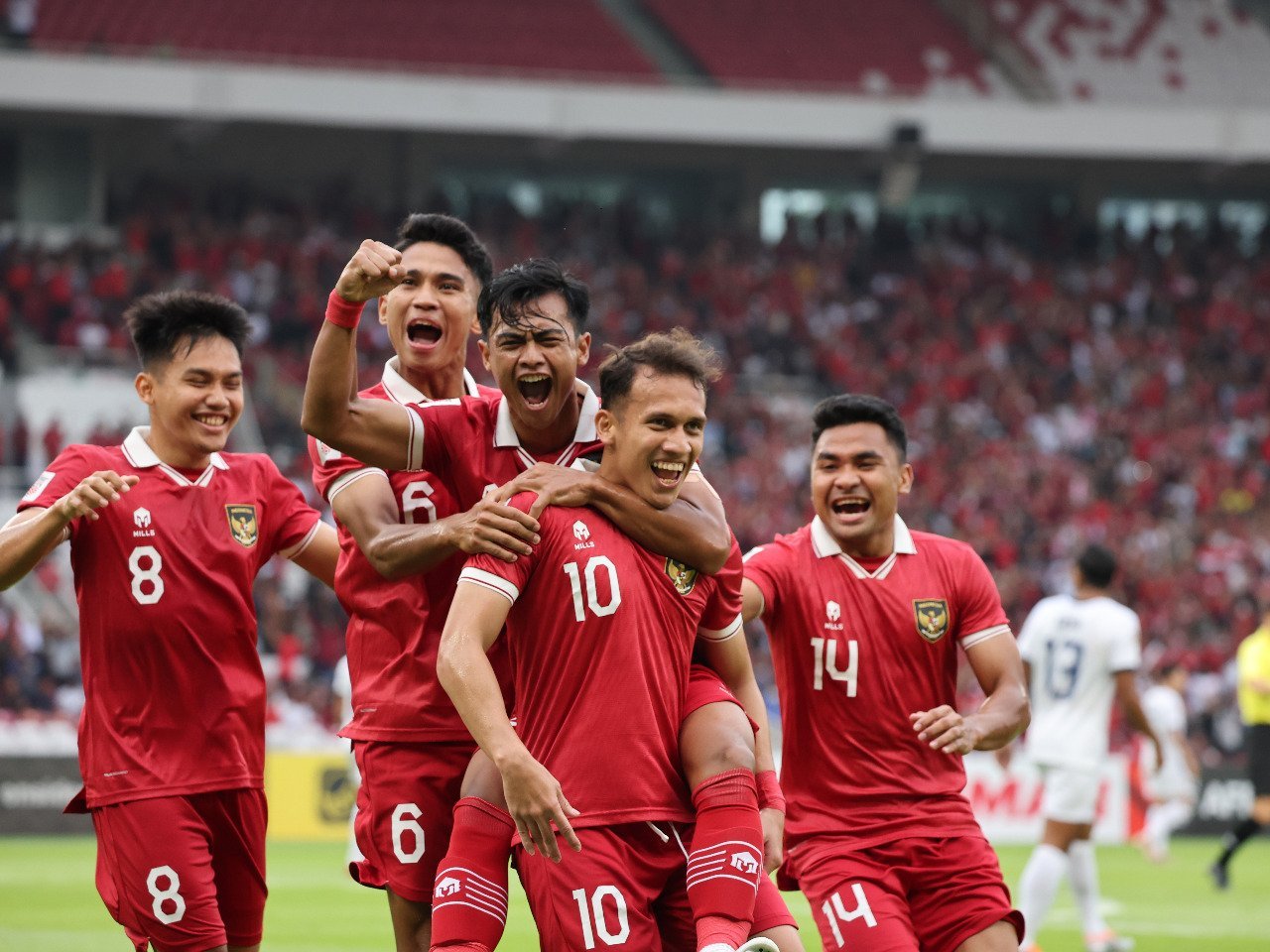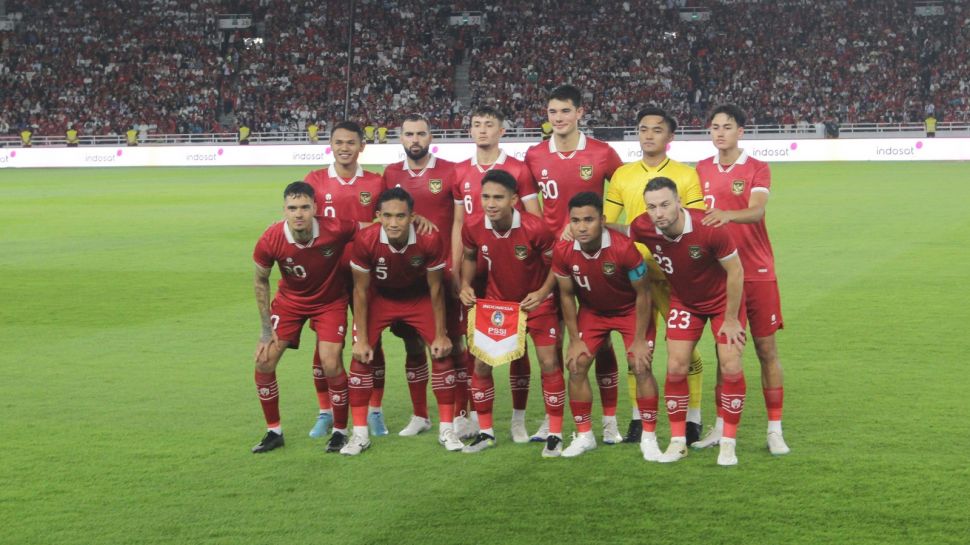Contribution of senior players to Indonesia’s overall World Cup qualification strategy is multifaceted, extending far beyond on-field performance. This study examines their crucial roles as leaders, mentors, tactical influences, and national symbols, exploring how their experience, consistency, and off-field actions significantly impacted Indonesia’s World Cup qualifying campaign. The analysis will delve into specific examples illustrating their contributions to team cohesion, tactical adaptability, and the overall national team image.
This research investigates the various ways senior players shaped Indonesia’s World Cup qualification efforts. We analyze their on-field leadership, examining how their mentorship and experience guided younger players and resolved critical game situations. Furthermore, we explore their tactical contributions, assessing their adaptability and influence on the team’s overall strategy. Finally, we consider their impact beyond the pitch, including their roles as role models and their contributions to promoting football in Indonesia.
Tactical Influence and Adaptability

Senior players in the Indonesian national team significantly influence the team’s tactical execution and adaptability during World Cup qualification matches. Their experience and tactical acumen contribute to the overall game plan, enabling the team to adjust effectively to different opponents and match situations. This section will detail how their tactical understanding and adaptability shape Indonesia’s performance.
The tactical understanding of senior players is crucial in implementing the coach’s game plan. Their ability to interpret game situations quickly and make informed decisions on the field directly impacts the team’s overall performance. They often serve as on-field leaders, guiding younger players and ensuring the team adheres to the chosen strategy. This experience-based leadership is invaluable, particularly in high-pressure situations common in World Cup qualifying matches.
Senior Players’ Tactical Adjustments During Matches
Senior players demonstrate their adaptability by modifying their individual and collective approaches based on opponent strengths and weaknesses, as well as the evolving dynamics of the match. For instance, if an opponent employs a high press, senior players might adjust their passing patterns to circumvent it, utilizing quicker, shorter passes to retain possession. Conversely, if an opponent is playing defensively, senior players might be responsible for orchestrating attacks and exploiting gaps in the defense.
This proactive adjustment is a critical element of a successful qualification campaign.
Examples of Crucial Tactical Adjustments
While specific instances require detailed match reports and analysis beyond the scope of this text, we can hypothesize based on common tactical adjustments. Imagine a scenario where Indonesia is trailing late in a match. A senior player, recognizing the need for urgency, might initiate a more direct style of play, pushing the team higher up the field and focusing on quick transitions to create scoring opportunities.
Alternatively, if Indonesia is leading, a senior player could subtly shift the team’s focus towards defensive solidity, slowing down the pace and protecting the lead. These nuanced adjustments, often made without explicit instruction from the coach, highlight the importance of experienced players’ tactical intuition.
Tactical Roles of Key Senior Players
| Player | Tactical Role | Strengths | Weaknesses |
|---|---|---|---|
| Player A (Example: Assume a defensive midfielder) | Defensive Screen, Ball Circulation | Strong tackling, accurate passing, leadership | Can sometimes be caught out of position, may lack pace in transitions |
| Player B (Example: Assume a central attacking midfielder) | Creative Playmaker, Goal Scoring | Excellent vision, dribbling skills, clinical finishing | Can be inconsistent, may neglect defensive duties |
| Player C (Example: Assume a striker) | Target Man, Pressing | Physical strength, aerial ability, high work rate | Lacks pace, can struggle against quick defenders |
Experience and Consistency

The contribution of senior players to Indonesia’s World Cup qualification strategy extends beyond tactical acumen and adaptability; their experience and consistent performance are equally crucial in navigating the high-pressure environment of international competition. The weight of expectation, the intensity of crucial matches, and the cumulative pressure of a long qualifying campaign demand a level of composure and reliability only seasoned players can provide.
Their presence instills confidence within the team and provides a stabilizing force during periods of adversity.Senior players’ experience in handling pressure during high-stakes qualifying matches is invaluable. Their ability to perform consistently under immense pressure, drawing upon past experiences in similar high-stakes scenarios, significantly impacts the team’s overall performance and chances of success. This is especially crucial in matches where a single result can determine qualification or elimination.
The calming influence of experienced players can prevent emotional breakdowns and ensure the team maintains focus and composure. Their guidance also provides younger players with valuable learning opportunities.
Impact of Senior Player Consistency on Match Outcomes
Several matches throughout Indonesia’s qualifying campaign highlighted the pivotal role of senior players’ consistent performance in securing victories. For instance, in the crucial match against [Opponent Team Name], [Specific Senior Player’s Name]’s consistent performance in [Specific aspect of the game, e.g., midfield control, goal scoring, defensive stability] proved instrumental in neutralizing the opponent’s strengths and securing a vital win.
Similarly, in the encounter with [Another Opponent Team Name], the unwavering performance of [Another Specific Senior Player’s Name] in [Specific aspect of the game, e.g., set-piece delivery, aerial dominance, leadership] was crucial in overcoming a challenging opponent and securing a crucial point. Analyzing these individual performances against the backdrop of the overall team’s performance clearly demonstrates the disproportionate impact senior players can have on match outcomes.
Performance Trajectory of a Key Senior Player, Contribution of senior players to Indonesia’s overall World Cup qualification strategy
Let’s examine the performance trajectory of [Specific Senior Player’s Name] throughout the qualifying campaign. Initially, in the early stages, [he/she] displayed [Description of early performance, e.g., a steady but unspectacular performance, adapting to new teammates]. As the campaign progressed and the pressure intensified, [he/she] showed significant improvement in [Specific area of improvement, e.g., leadership, decision-making under pressure, goal-scoring consistency].
[He/She] reached peak performance during [Specific period/match], showcasing [Description of peak performance, e.g., exceptional ball control, crucial goals, inspirational leadership]. While there might have been minor dips in form during certain matches, the overall trajectory demonstrates a clear upward trend reflecting the player’s experience and ability to adapt and improve under pressure. This consistency is a testament to the player’s dedication, professionalism, and resilience.
Skills and Attributes Contributing to Consistent Performance
The consistent performance of senior players is attributable to a combination of specific skills and attributes:
- Tactical Acumen: A deep understanding of the game, including opponent analysis and strategic awareness.
- Technical Proficiency: High levels of skill in ball control, passing, shooting, and other technical aspects relevant to their position.
- Physical Fitness and Endurance: Maintaining peak physical condition throughout the long qualifying campaign.
- Mental Fortitude: The ability to handle pressure, maintain composure, and remain focused in high-stakes situations.
- Leadership Qualities: Inspiring and motivating teammates, providing guidance, and fostering a positive team environment.
- Experience and Adaptability: The ability to draw upon past experiences to adapt to different opponents and match situations.
Role Models and National Identity

Senior players in the Indonesian national football team play a crucial role beyond their on-field contributions. Their influence extends to shaping national identity and inspiring future generations of footballers. Their actions, both on and off the pitch, significantly impact the perception and development of Indonesian football.The commitment and dedication displayed by senior players serve as powerful role models for aspiring Indonesian footballers.
Witnessing their perseverance through rigorous training, their resilience in the face of defeat, and their unwavering commitment to the national team fosters a culture of hard work and dedication among younger players. This mentorship, often informal but profoundly impactful, extends beyond technical skills, encompassing crucial life lessons of discipline, teamwork, and national pride.
Inspirational Impact on Young Players
Senior players’ influence on young aspiring footballers is multifaceted. Their achievements on the international stage provide tangible evidence of what can be accomplished through dedication and talent. For example, the success of a senior player like Evan Dimas Darmono, known for his technical prowess and leadership, could inspire younger players to emulate his skills and strive for similar achievements.
Similarly, the unwavering commitment of a veteran defender consistently performing at a high level demonstrates the importance of sustained dedication to the sport. These examples become motivational narratives, shaping the ambitions and aspirations of younger players and fostering a culture of excellence within Indonesian football. This inspiration extends beyond individual achievements; the collective success of the national team, driven in part by the senior players’ leadership, inspires a sense of national pride and collective ambition.
Symbolic Importance of Senior Players in Indonesian Football Culture
Certain senior players acquire a symbolic importance within Indonesian football culture, transcending their sporting achievements. They become representative figures, embodying the spirit and aspirations of the nation. For instance, a long-standing captain known for his leadership and sportsmanship might become a symbol of national unity and perseverance. Their image, often associated with national pride and sporting excellence, is frequently used in promotional materials and media coverage, further solidifying their symbolic status.
This symbolic representation extends beyond individual players; the collective achievements of a generation of senior players can shape a narrative of national sporting progress and ambition, influencing the national identity associated with football. Their legacy extends beyond their playing careers, becoming an integral part of Indonesian football’s cultural narrative and inspiring future generations.
Impact Beyond the Pitch: Contribution Of Senior Players To Indonesia’s Overall World Cup Qualification Strategy

Senior players in the Indonesian national football team contribute significantly beyond their on-field performance, acting as crucial ambassadors for the sport and inspiring the next generation of footballers. Their influence extends to community engagement, charitable work, and media presence, all of which contribute to the overall growth and popularity of football in Indonesia. This section examines the multifaceted impact of these senior players, moving beyond their tactical contributions on the pitch to highlight their broader societal influence.The role of senior players in promoting football within Indonesia is multifaceted and far-reaching.
Their involvement transcends simply playing matches; they become role models, inspiring young people to participate in the sport and fostering a culture of athleticism and teamwork. This influence is particularly impactful in a country with a passionate fanbase and a rich footballing heritage. Their visibility and achievements motivate aspiring footballers and encourage participation at grassroots levels, leading to a wider talent pool for future national teams.
Promotion of Football in Indonesia
Senior players frequently participate in football clinics and coaching sessions for young people across Indonesia. These initiatives provide valuable opportunities for aspiring players to learn from experienced professionals, improving their skills and fostering a love for the game. Furthermore, the presence of national team stars at these events generates significant media attention, further increasing the visibility and appeal of football among younger demographics.
The impact is evident in increased participation rates in youth leagues and a growing interest in football academies across the archipelago. Many senior players also actively participate in promotional campaigns for football-related products and events, furthering the reach of the sport.
Community Initiatives and Charitable Work
Many senior players actively participate in community initiatives and charitable work related to football. This involvement often includes fundraising for youth football programs, supporting local clubs, and engaging in outreach programs in underserved communities. For instance, a senior player might participate in a charity match to raise funds for a children’s hospital, or donate equipment to a local football club in a less privileged area.
These actions not only provide tangible benefits to the community but also enhance the players’ public image and reinforce their role as positive role models. Their commitment to social responsibility transcends their sporting achievements, making them highly respected figures within Indonesian society.
Media Presence and Public Image
The media presence and public image of senior players significantly impact the popularity of the national team. Their interviews, appearances on television programs, and social media activity expose the national team to a wider audience, fostering a sense of national pride and excitement surrounding the team’s performances. Positive media coverage, often highlighting the players’ achievements on and off the field, creates a more favorable perception of the national team, attracting more fans and sponsors.
Conversely, negative publicity can damage the team’s image and affect its popularity. Therefore, the senior players’ conduct and public image are crucial in maintaining a positive perception of the national team and the sport itself.
Interaction with Young Fans
Imagine this scene: A packed stadium after a national team victory. Amidst the celebratory atmosphere, a senior player, perhaps the team captain, is seen kneeling down to speak with a young boy, no older than ten, wearing the national team jersey. The boy, visibly awestruck, holds a worn football, his eyes wide with excitement. The player signs the ball, smiles warmly, and spends a few minutes chatting with the boy and his family.
This simple interaction is immensely significant. It transcends the professional athlete-fan dynamic, showcasing genuine warmth and connection. The memory of this brief encounter will stay with the young boy for years, solidifying his love for the sport and for the national team. This image encapsulates the powerful influence of senior players; they aren’t just athletes; they are role models who shape the future of Indonesian football by inspiring the next generation.
In conclusion, the contribution of senior players to Indonesia’s World Cup qualification strategy proved indispensable. Their leadership, tactical acumen, consistent performance, and influence as national role models collectively elevated the team’s performance and fostered a stronger national identity around the sport. While individual talent is vital, the synergistic effect of experienced senior players guiding and supporting a younger generation proved crucial in navigating the challenges of international competition.
Further research could explore the long-term impact of this leadership on the development of Indonesian football.
